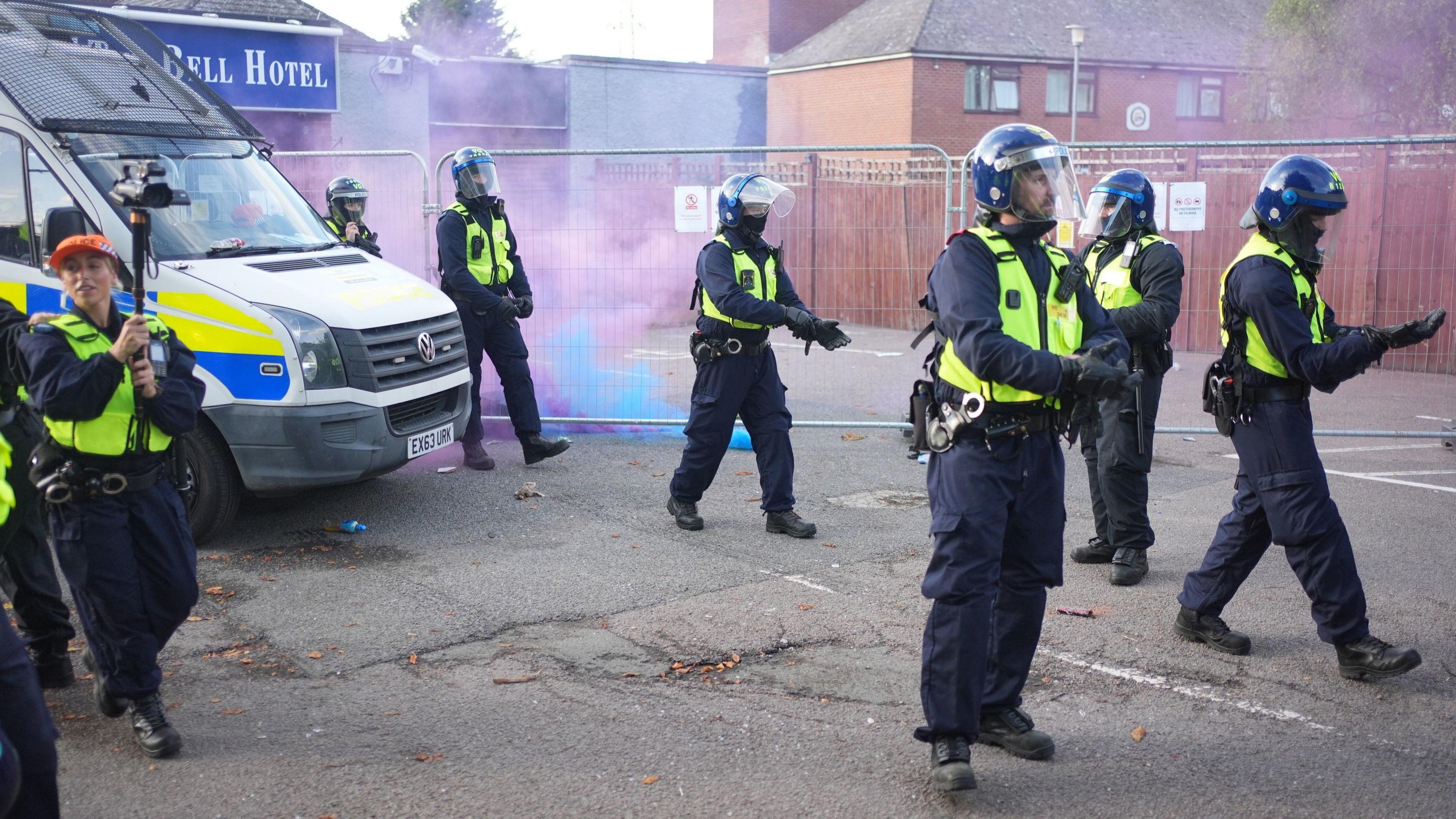The town hit by divisive protests over asylum seekers hotel
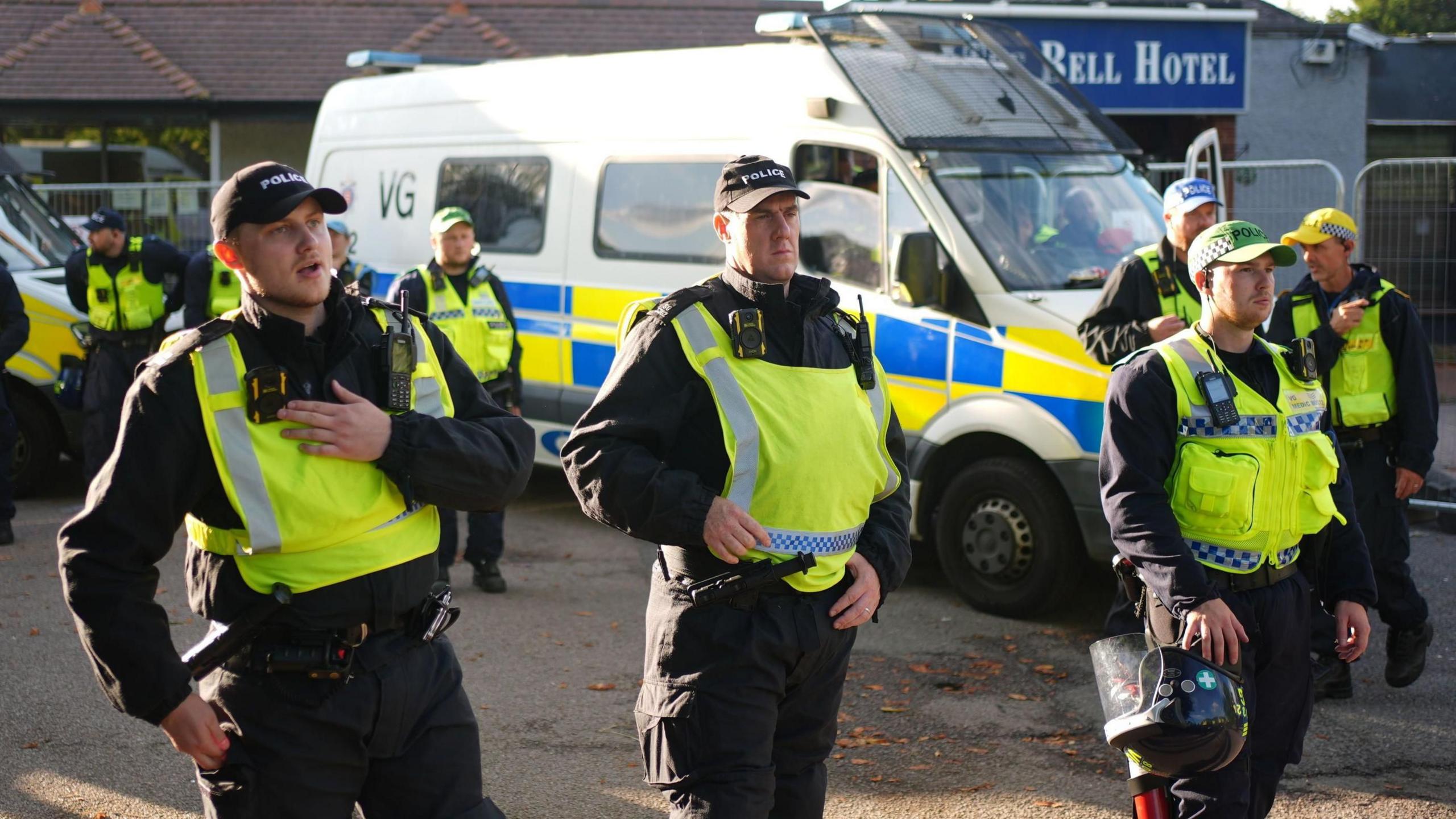
There has been a large police presence outside the Bell Hotel in Epping over the past week
- Published
Epping has found itself at the centre of a controversy over asylum seekers being housed in hotels in the past week.
The Essex town, with a population of about 12,000 and which sits at the end of the Central line on the London Underground network, has seen more 1,000 people take part in two protests.
It has centred around The Bell Hotel, where the Home Office has placed single refugee men for several years.
The protests followed the arrest and charge of an asylum seeker over an alleged sexual assault on a girl.
A council leader and then local MPs called for the hotel to be shut, ahead of the demonstrations.
The protests have turned violent at points, with police criticising "mindless thuggery" after one of their officers was injured. Six people were later arrested on suspicion of offences ranging from criminal damage to violent disorder.
What do residents make of the situation, and how do they feel about their town being thrust into the spotlight?
'Not what you'd expect'
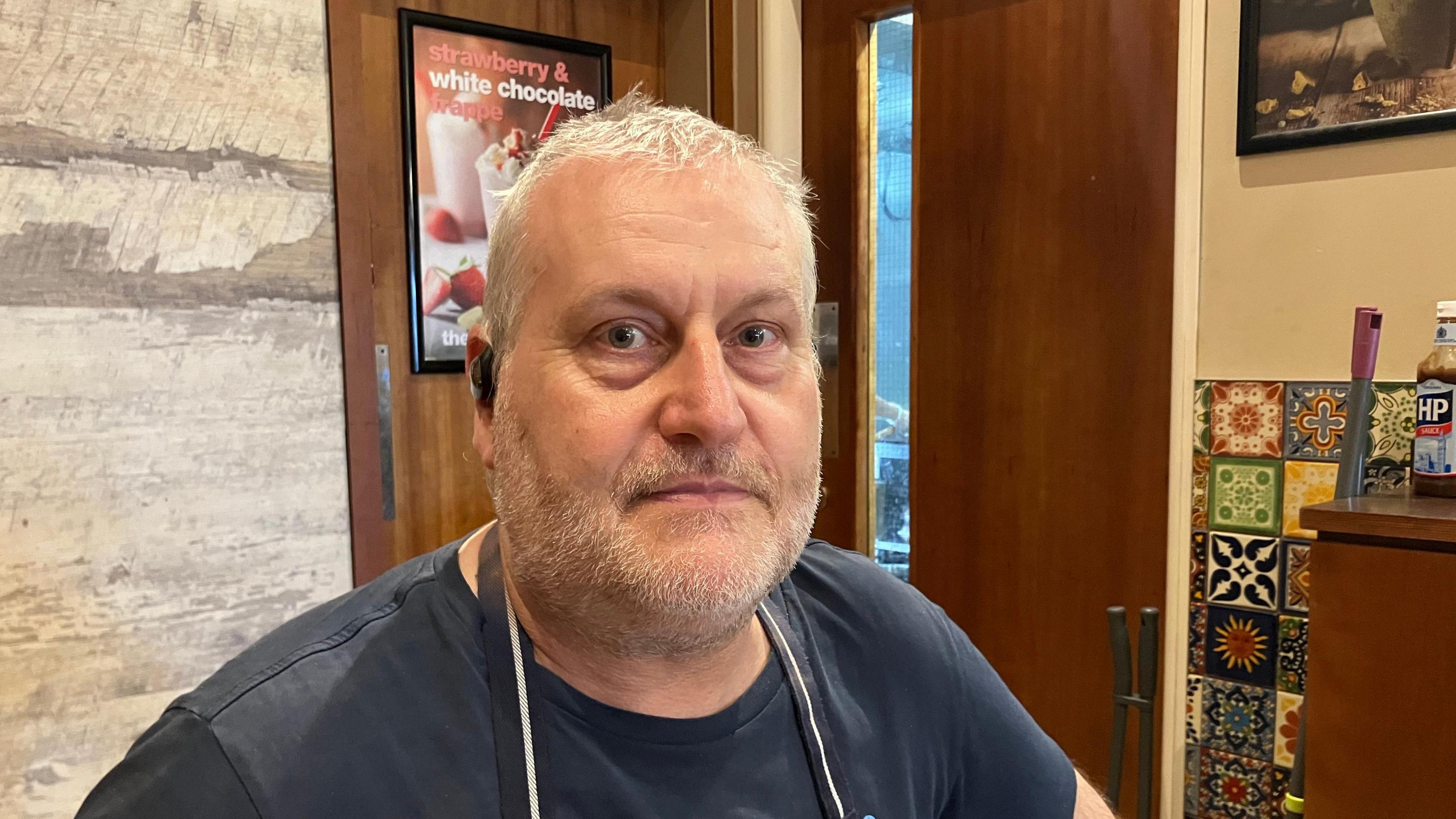
Geoff Morris, a cafe owner in Epping, says he is concerned about the levels of violence during the protests
Geoff Morris, 55, owns a cafe in Epping and is concerned about the violence of the recent protests.
"It's a bit over the top - it's more directed at the refugees than anything else, which is a shame really," he said.
He said Epping was "quite a chilled, upmarket town - it's not what you would expect really".
He added: "I'm worried the violence is going to get out of hand - it's mindless violence really."
'Enough's enough'
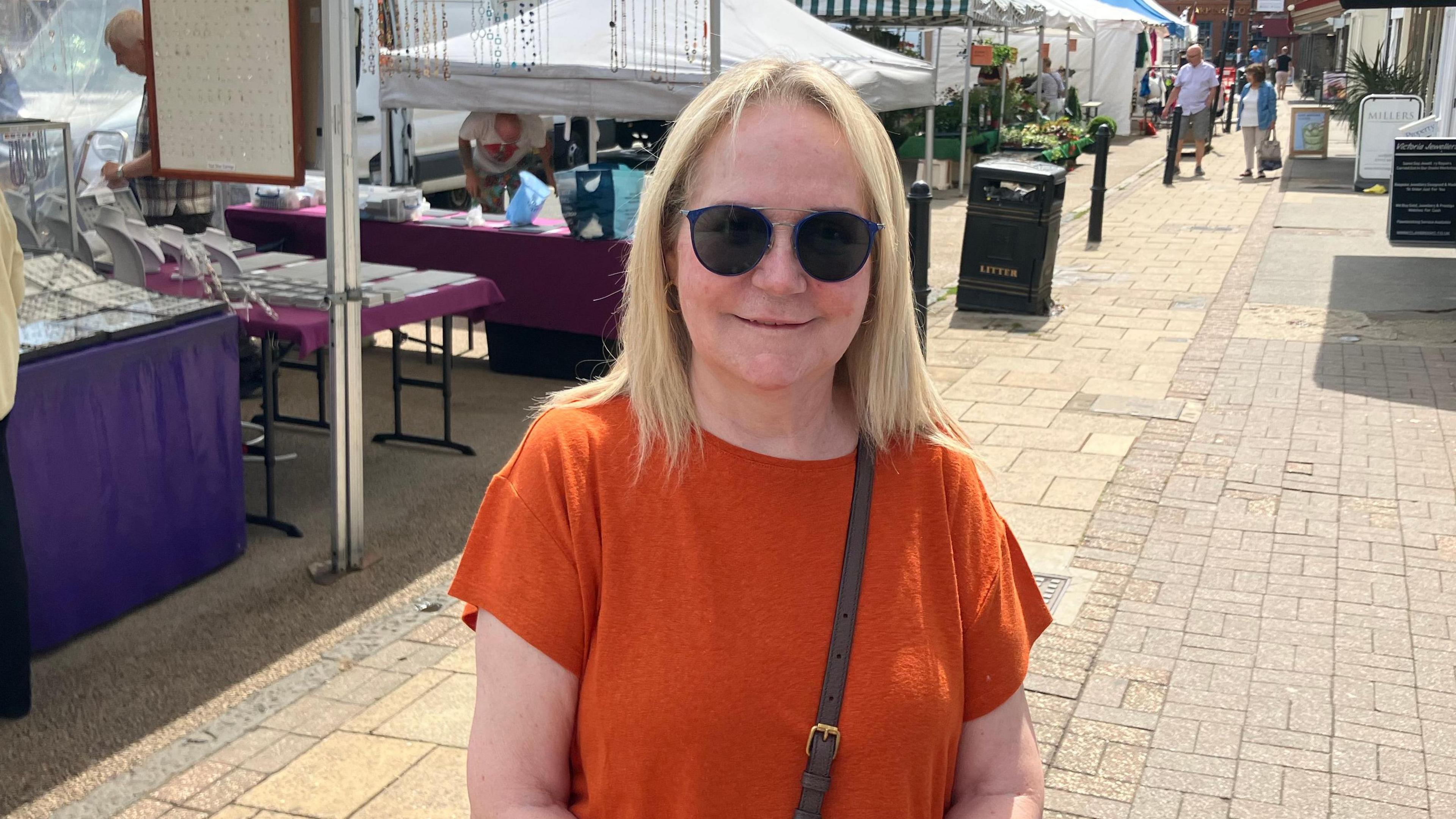
Barbara Frost said several people had issues with the hotel
Barbara Frost, 65, a part-time administrator, and her husband Steve Frost 63, a company director, who attended Sunday's protest, said they understood the reasons behind the gatherings.
Mr Frost said: "People have had enough."
However, he made it clear he "does not condone violence".
"It's totally out of order," he said.
At Sunday's protest he said there was "an element from outside Epping wearing masks and some of them came in waiting to cause trouble".
Mrs Frost said: "I don't condone violence but I agree, enough's enough - when we moved to Epping, it was considered a nice area."
'Not a suitable location'
Talking to BBC Newsnight, Chris Whitbread, leader of Epping Forest District Council said: "Fair-minded people within the local community, initially protesting peacefully, want the hotel closed.
"They don't feel that it's the right location for it. They want the hotels closed. I have to say, as the leader of the council, that's always been my position and the council's position.
He said the hotel was "not a suitable location" to house the asylum seekers, with it being near a school and a cricket club.
The leader of the council said it was important to find a new location to house the residents "because they're human beings as well and they're vulnerable and it must be awful being in the Bell Hotel at the moment".
He said there should be a processing stage where the people who are allowed to remain need to be assimilated into existing communities.
But Mr Whitbread continued: "We need to find better locations to what we're currently doing."
'Shouldn't have happened'
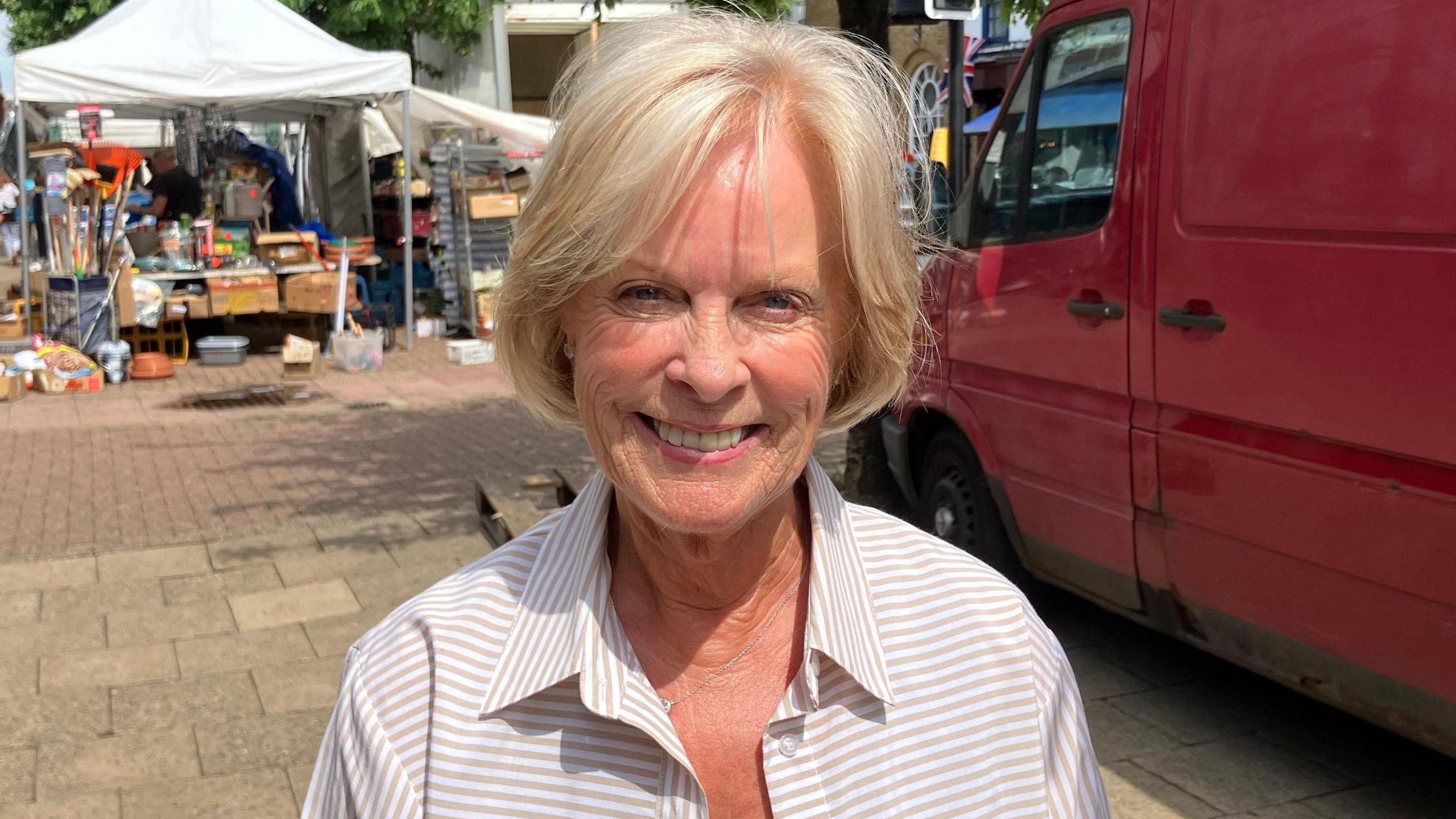
Pauline Ashton says she is not against protests in general, but she is against violence
Pauline Ashton, 77, a retired magistrate and former Epping resident, said while she was not against protests, she did have issues with the violence in the town.
"I don't like that - I think it's a little bit over the top and I'm not happy about the situation," she said.
She said she blamed the "anti-immigrant activists" and believed people were being brought in from "outside Epping".
"Clearly people aren't happy with the number of refugees that are coming and going," she said.
'So much division and hatred'
Kerry Gilroy, a 53-year-old finance manager, said: "It's been quite upsetting... seeing how divisive it's made everything.
"It's a really uncomfortable feeling that there is so much division and hatred around at the moment. It doesn't feel good."
She said she was not sure where to "lay the blame" and had "read a lot about why people are turning up and what they think".
Ms Gilroy believes the situation has been caused by successive governments and this has been "a lightning rod about how people are feeling about the cost of living crisis".
"I blame all of that - I don't necessarily blame the people [turning up at the hotel].
"It's not for me to blame. I don't agree, but I understand the anger and frustration."
The costs of policing
Essex Police has revealed the costs involved in policing the protests since Thursday night.
"The cost of policing criminal incidents in Epping over the last week has reached £100,000 - money which we would much rather spend on continuing to cut crime across Essex and keeping our neighbourhoods safe," the force said.
Ch Supt Simon Anslow added: "What we have seen in Epping over the last week is not protest, it's hooliganism and the people responsible for it can expect to be held accountable.
"To those who seek to use social media to peddle untruths and lies about the incidents in Epping on Thursday and Sunday, you won't win."
The Essex town 'divided' by protests
The unrest concerns a hotel in Epping that's being used to house asylum seekers.
Get in touch
Do you have a story suggestion for Essex?
Follow Essex news on BBC Sounds, Facebook, external, Instagram, external and X, external.
Related topics
- Published21 July
